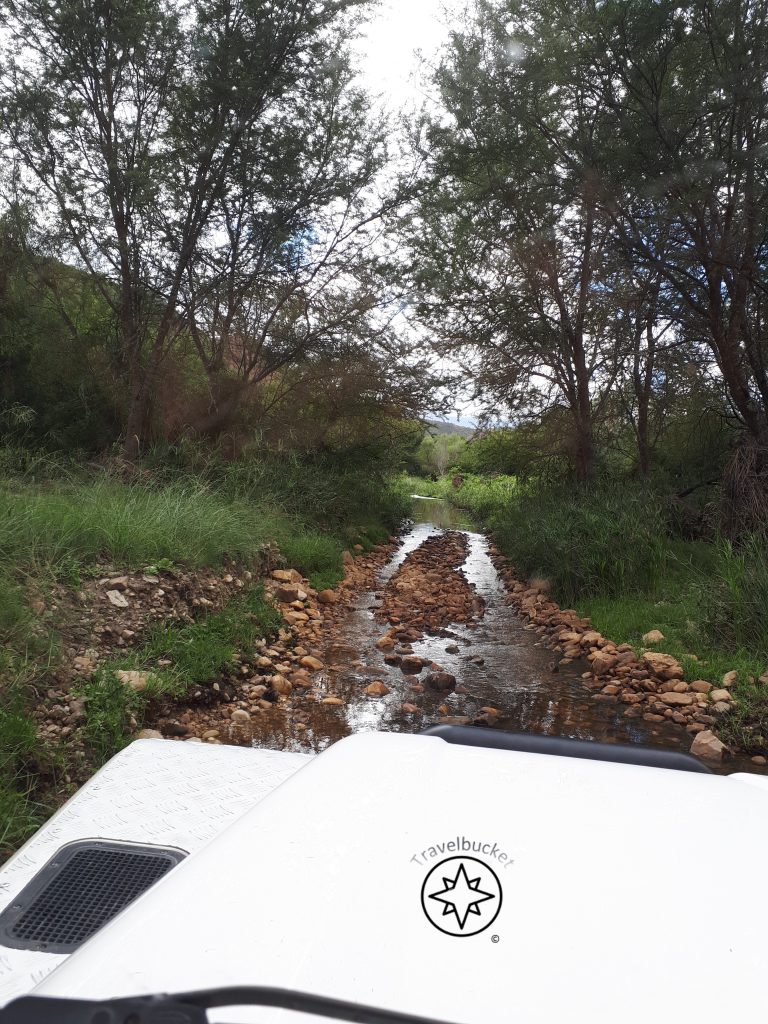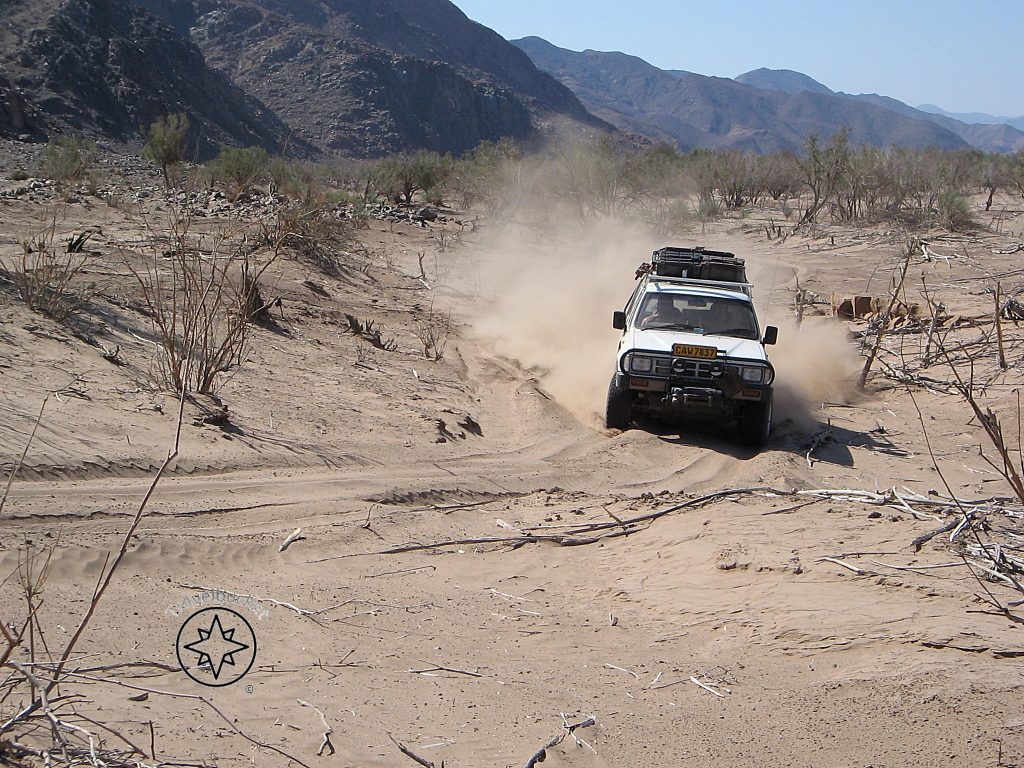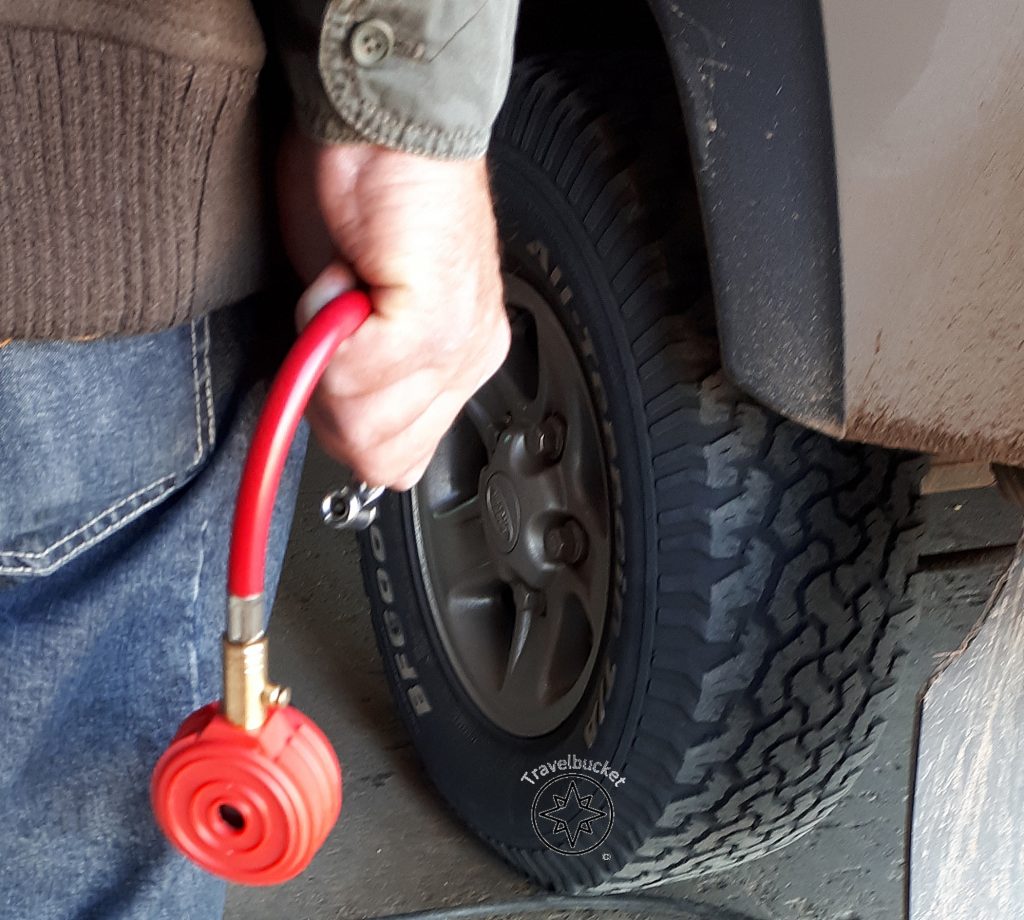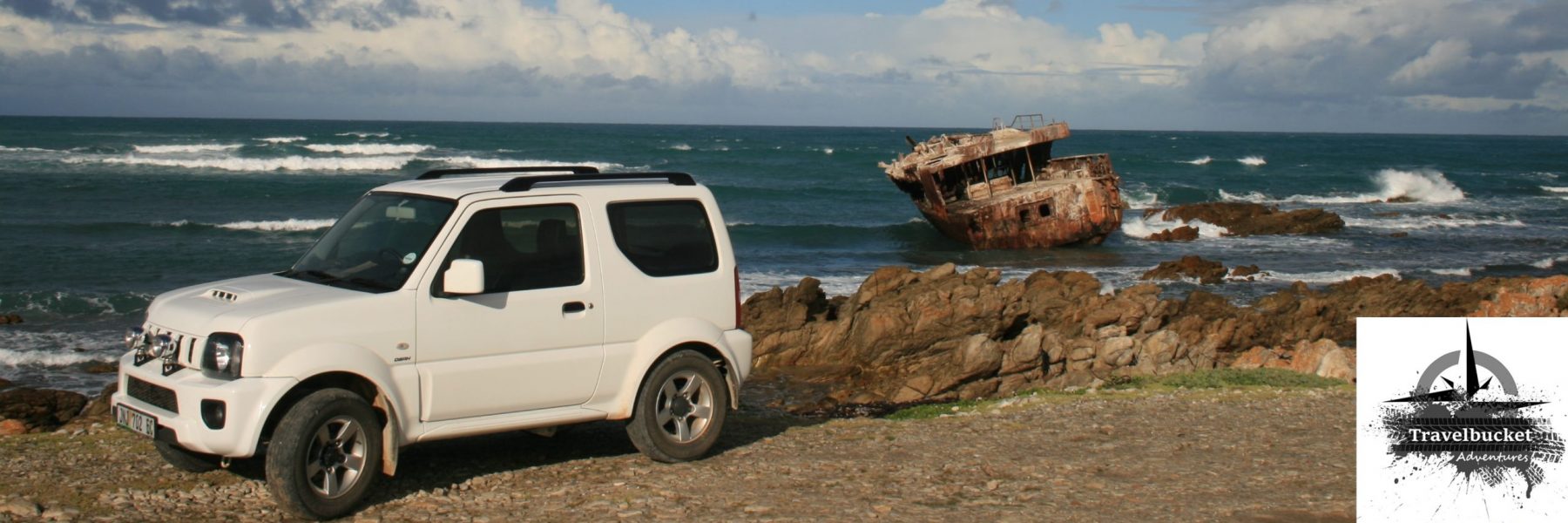I am a Landy wife so I am sort of “expected” to know the right tyre pressure for the job or shall I say the terrain I am tackling to get me out of trouble when needed. So, here I go!
First of all, there is a little (or bigger) sticker pasted on the inside of your door frame on the driver’s side that displays all kinds of figures. Make time to read and understand what it is telling you, it can make life a lot easier than a random thumb suck figure!
Note ladies: these figures are recommended by the vehicle manufacturer in order to assist your driving pleasure and eradicate tyre problems.

When you throw into the tyre pressure mix different surface types – sand, thick sand, pebbles, shaled surfaces, tar – the pot gets a different mix altogether. Another factor that adds a little salt to the mix is the weight of the load that you are carrying, but maybe I will attempt to explain that in a future post. Let me not divert from my topic …
Interesting stuff? Yeah, right. So, let me try to explain this theory in ordinary English as how I understand it.
Note to the men : You are welcome to leave a comment if I am not correct!
When you drive on a flat even tarred surface and you keep the prescribed figures (remember that sticker on the inside of the driver’s door frame?) you will be okay. Now you are heading deeper into darkest Africa and things get a different taste. The road surface changes to thick sand as you head into the Namib desert or mud in the rainy season in Zambia. Lekker, man!
So, hubby taught me the following and most times it gets me out of trouble. Deflate, deflate, deflate to zero point eight!
Now what is the theory behind this? The higher the pressure the less rubber makes contact with the ground and less traction you will have. The lower the pressure the bigger the rubber surface gets and the more traction you will have. It all boils down to if you are firmly anchored to the ground the best chance you have for traction and traction means moving forward! But then there is another bit of sauce that gets added to the mix in the pot – we are not done yet! – when you get back on hard surfaces (i.e. a tarred road or good gravel) inflate again to avoid heat buildup in your tyres.
You see ladies, It is actually hard work to go off-roading and explore the African continent! 😉

Some of you will know that the general off-road slogan is drive as slow as possible but as fast as necessary. Then the tyre slogan should be something like: deflate your tyres as much as necessary, but as little as possible.
Further to this, the best of all about lowering your tyre pressure is that it is even good for the environment as it causes less corrugations which again do not prompt drivers to widen the track to avoid the corrugations (you see the green side in me popping out again!).
You see the bigger picture of how all the things just add up in this pot and cooks nicely together?
Important things to remember:
- Always carry a reliable pressure gauge on your trip
- And the flipside to that is to carry a trusted air compressor

The long and the short of this post is that a 4×4 wife quickly learns to read things that are not really interesting to her, but you anyway put it into storage as you never know when is the day that you have to scratch in those stored files – and remember if all else fails, read the instructions in the manual!
If you found this of value and need some more driving tips head over to our post; How to negotiate African roads
